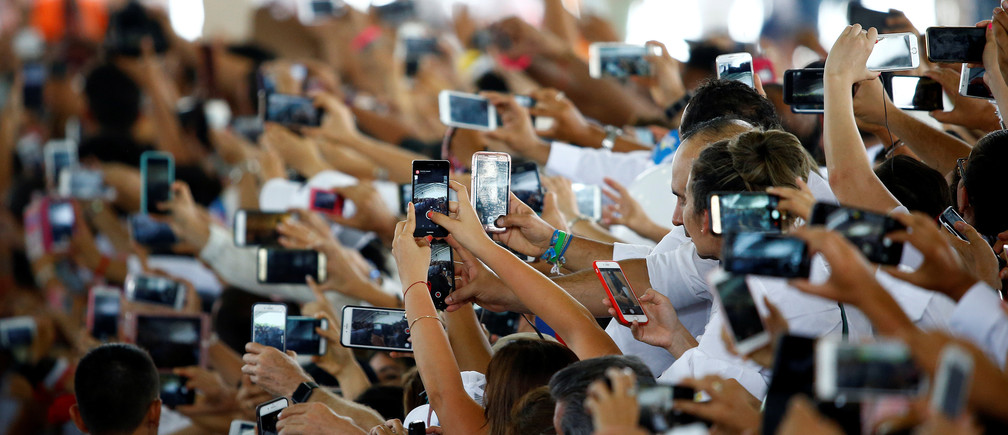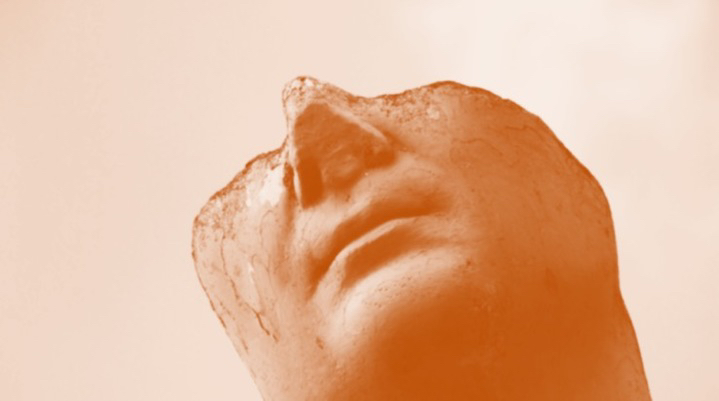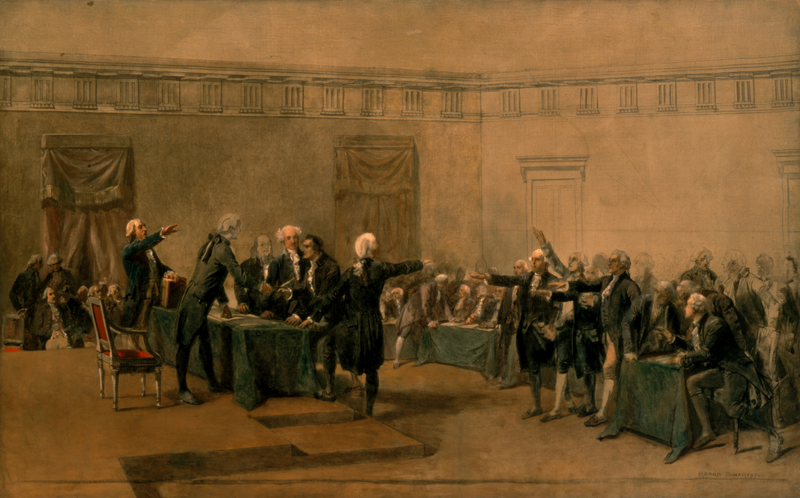Democracy and despotism in a digital age.
Married to the Mob

Romanticizing direct democracy leads to pandemic anarchy.
In times of upheaval and uncertainty, there is an understandable instinct to reach for and defend the familiar—to check up on friends, take stock of enemies, and graft old patterns onto new problems. Even before the coronavirus, rising tensions with China had primed pundits to view the world as a contest between liberal democracies and authoritarian states, conceptual heuristics borrowed from the Cold War. Now, as death tolls and downturns diverge rapidly by region, many are framing the divergence in terms of that contest, noting the ways in which democracies have—on average—bested autocracies.
Pandemic Response Theory
Yes, there were exceptions; yes, China’s draconian measures helped flatten the curve. But, the argument goes, there might not even have been a curve if the Chinese Communist Party hadn’t silenced doctors and whistleblowers, hadn’t co-opted the World Health Organization, hadn’t lied about the outbreak or invented the idea that it was “just the flu.” And while some democracies were indeed caught off guard, others—Finland, Iceland, Australia, South Korea, and (especially) Taiwan—seem to have managed just fine without barricading families in their homes.
The trouble with this argument is that it doesn’t really explain why the second set of democracies outperformed the first, or why they mostly seem to be located in Scandinavia and Southeast Asia. And so alternative theories have been proposed in its place.
One theory is that the collectivist culture of some countries makes them more deferential to experts and better suited to social coordination. Another, offered by Francis Fukuyama, is that liberal democracy matters less in a pandemic than state capacity, and that there is little correlation between the two: “What matters in the end is not regime type, but whether citizens trust their leaders, and whether those leaders preside over a competent and effective state,” Fukuyama writes—meaning that neither side, democrats or autocrats, can claim to be vindicated by the crisis.
Each theory gets some things right. The free exchange of information would have limited China’s outbreak, collectivist cultures do have an easier time social distancing than individualist ones, and competence can be found (or felled) across a wide range of regimes.
But in its own way, each is also an evasion of the problem that has dogged democracy since its inception: what if The People do not want—or even want to hear—what’s best for them? The democratic/authoritarian frame relies on cherry-picking and whataboutism, pitting China against South Korea instead of Spain or Italy. The collectivist frame is more honest, but equally useless, in that its message to non-collectivist democracies is essentially “tough luck.” And the state capacity argument ducks the question by abstracting trust in government from the nature of the state, which depends for its legitimacy and efficacy on memes that the regime itself promulgates—that the people have a God-given right to be heard, say, or the government a God-given obligation to listen.
Libertarian Populism
Regime type, in other words, constrains how far the government can stray from the governed without losing their trust. The more democratic the regime, the less they can stray—and the more libertarian the people, the weaker the mandate for lockdowns and other forms of abnegation.
Enter the United States, where the political culture is both deeply democratic and deeply libertarian, characterized by a distrust of state power, faith in free markets and the common man, and, for those reasons, by an aversion to hierarchy, expert and epistemic as well as moral and political.
This ethos has obvious roots in the American Right (its economic dogmas in particular), but also, less obviously, the American Left, whose push for participatory democracy often manifests in what my colleague Peter Skerry calls “procedural populism:” the culling of structural barriers between public policy and public opinion. One such barrier is the existence of super-delegates; another is the Electoral College. By weakening or even just complaining about these things, the progressive Left, no less than the Reaganite Right, contributes to the notion that The People™ can do no wrong, and thus to a regime in which policymakers feel (and, in some cases, are) obliged to indulge their constituents. Combine that indulgence with no-holds-barred individualism, and you have a recipe for pandemonium in a pandemic, or indeed any crisis that requires the homogenization of behavior.
This dynamic isn’t set in stone, of course. It can be momentarily disrupted by facts and fear, by friends and family members dying. But it was still very much in force as of March 2, before the carnage became visible and the lockdowns politically palatable, when they might have prevented some 50% of U.S. deaths. And it has now resumed prematurely, as protests clog the streets of America’s major metropoles—risking a spike in infections, a new need for restraints, and a total inability to enforce them.
In part, this is because some lockdowns were poorly targeted, with services deemed “non-essential” for essentially arbitrary reasons, whereas others went on too long, causing fiscal pressure and cabin fever to become progressively less containable. In part, it’s because the “experts” botched their initial response to the coronavirus (and the financial crisis, and Iraq, and Afghanistan…), which meant that any policy given their imprimatur was always going to be greeted with suspicion, its legitimacy circumscribed.
And—yes—in part it is because of a gruesome murder that pissed a lot of people off, and would have done so in the best of times.
But it is also because of the way that anger has been accommodated by the political class—the way that mayors, governors, and bureaucrats have deferred to the groundswell without a word of pushback. In some cases, the deference is rank partisanship, a function of pre-existing priors and commitments. (“Don’t blame the protests” for a “spike in coronavirus cases,” Mark Levin, the chair of the New York City Health Committee, tweeted recently. “Blame racism.”)
Yet the lack of pushback even from moderates (whose silence predates the struggle sessions of the past fortnight) suggests another force at play, too: a trans-partisan habit of democratic obeisance. That lockdowns, an unprecedented use of state power, have fallen victim to protests against the state—which, upon their genesis, the state all but endorsed—is thus a fittingly American end to the war on coronavirus: a victory for private freedom, and a calamity for public health.
Salus Populi
Our problem, in other words, isn’t that we’re a liberal democracy; it’s that we’re a libertarian democracy, and an increasingly direct one at that—which means that a proactive shutdown would in some sense have been a blow to our self-image, to the foundations of regime legitimacy…which might have further reduced trust in government, made the shutdowns harder to enforce, and intensified the blowback from Right-leaning media.
That is why, amidst this plague, America would do well to recall an earlier, better self-image, one balancing accountability with authority: that of a representative government.
Representation, rightly understood, is about deputizing a few to make decisions on behalf of the many. It’s about giving the people a say in who governs, not necessarily over how.
The framers were obsessed with this distinction. Pure democracy, James Madison quipped, “is the most vile form of government.” It “wastes, exhausts, and murders itself,” vented John Adams, having experienced it firsthand as Commander in Chief. In these attacks, our founders weren’t just impugning the wisdom of crowds; they were suggesting that the public will was not always synonymous with the public good, and that—when push came to shove—government should prioritize the latter.
The British sources on which the American Founding drew made the same point. In an uncanny anticipation of the coronacrisis, one Whig pamphlet asserted that it was “Salus populi,” not “Vox,” that should prevail—the “health” of the people, rather than its “voice.” By this, the authors were not rejecting popular sovereignty so much as reinterpreting it: because Parliament represented the people, it had an obligation to protect them from threats both foreign and domestic—including, the pamphlet reasoned, the people themselves.
Such reasoning runs the risk of abuse, obviously, and can undermine the pretense of popular sovereignty if taken too far. But some dose of it is essential in a pandemic, especially in those deceptively calm early days—all the more so for the United States, with its reflexive anti-statism and live-and-let-live libertarianism.
The point of representation, then, is to keep the dosage in check. Free and fair elections, for state officials as well as national ones, mean that citizens can choose who will be in charge of curtailing their freedoms should the situation warrant it, and discourage leaders from abusing that authority if they want to win another term. Given these safeguards, there is very little risk of “tyranny” when governors tell their constituents to stay at home. There is, however, a risk of anarchy when they shut down synagogues instead of Antifa.
Of course, if a governor thinks the most prudent course of action will get him voted out, he’ll still be disincentivized from taking it. So although COVID-19 hasn’t shown democracy to be intrinsically less competent than authoritarianism, it has offered us a glimpse of where democracy can end up when its inner tendencies are not qualified and resisted, and how challenging it can be to resist them.
And therein lies the paradox of the pandemic: for the first two months of 2020, it was taken more seriously by populists and early Trumpists than by experts or the establishment. Yet our late and lackadaisical response to it also illustrates the dangers of populism, particularly in its tyrannophobic, American variants—Left and Right.
True, our elites failed to anticipate the virus. True, many of them were slow to react, and reacted incompetently when they did. But those failures happened because popular sovereignty was allowed to reach its populist, pernicious denouement, in the form of a governing class unwilling to defy the people’s whims. If COVID-19 damages democracy, it won’t be due to the imagined virtues of authoritarianism. It will be, as Madison and Adams forewarned, because democracy became too democratic for its own good.
The American Mind presents a range of perspectives. Views are writers’ own and do not necessarily represent those of The Claremont Institute.
The American Mind is a publication of the Claremont Institute, a non-profit 501(c)(3) organization, dedicated to restoring the principles of the American Founding to their rightful, preeminent authority in our national life. Interested in supporting our work? Gifts to the Claremont Institute are tax-deductible.
Part I: Unfettered reason cannot conserve anything.
One dose will erase your whole political mind.






